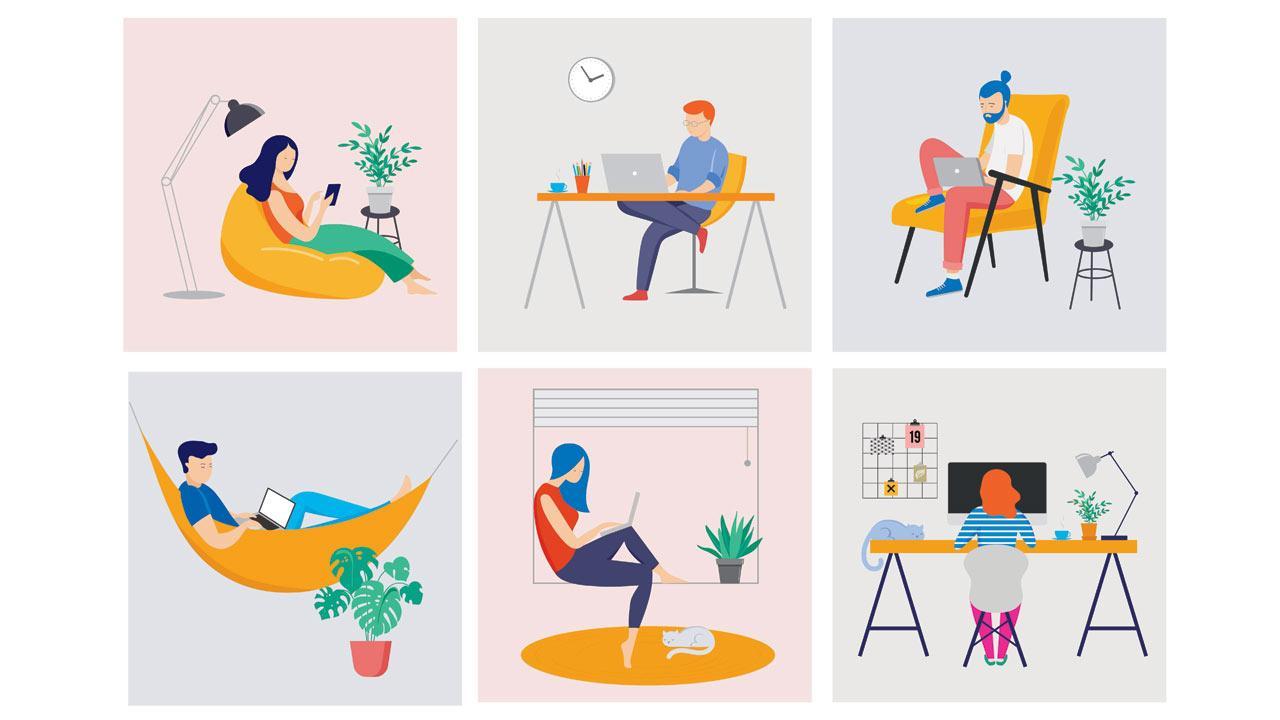It was an undeniably difficult year, but it left with important lessons that will stay with me for a long time

As months in isolation crept past, my approach to work evolved. I realised it wasn't affecting productivity in any way. Representation pic/Getty Images
Offices are overrated. That is the biggest thing I learned over the past 10 months of working from home. I began going to offices over two decades ago, and the time I spent at featureless corporate warehouses only increased as I got older. By the time COVID-19 arrived, I had been taught to believe that a minimum of 10 hours a day ought to be spent at an office if one has any interest in getting ahead. Almost overnight, that ridiculous notion was debunked.
ADVERTISEMENT
There are obvious advantages of travelling to a place of work, of course, aside from the access to infrastructure that can’t always be replicated at home. There is the social component that we tend to take for granted, until we realise how tiresome an endless conversation on Zoom can be. And yet, as months in isolation crept past, my approach to work evolved. I realised it wasn’t affecting productivity in any way, neither for me nor my colleagues across various departments. I acknowledged this was impossible for some roles, such as IT or housekeeping, but couldn’t believe the number of employees around the world who effortlessly managed to accomplish everything they used to before the pandemic without having to leave their living rooms.
Another big lesson was personal and taught me to reconsider who I thought I was. For years before the lockdown, I had a social life that involved dinners with friends, weekend getaways every other month, and a stream of nights out with colleagues and acquaintances. All those encounters vanished in a puff of smoke, and yet, the absence of those interactions didn’t kill me. We are social animals, and the need for contact is critical for all kinds of reasons.
I knew this was causing serious damage to the mental health of millions but was surprised to realise how my own physical and mental well-being improved when I had only myself for company. By the time December rolled around, I had accepted that I no longer need as many people in my life as I once assumed I did.
I spent a lot of time reconsidering the relationships I had, cynically evaluating the need for them and arriving at the conclusion that few of them had any real meaning. What a pandemic does, in essence, is remind one of mortality and how we eventually face the possibility of our demise on our own. It prompted me to reach out to those I had strong connections with and consciously drift away from those I would meet just once every year. I do not regret that decision.
There was positivity too, and light, in the acts of kindness that surfaced from all corners of the world. What they taught me is that we have it in ourselves to be good if we can rise above the propaganda that keeps us down.
Last year began on a sour note long before the virus was detected on our shores, on account of a bigoted party’s attempt to divide us for political gain. As farmers marched towards the capital in the dying days of 2020, I was reminded that not all of us have succumbed to prejudice yet. It left me with the hope that this pandemic was just a hiccup, much like today’s political leaders will be. The idea of India is stronger than the people who think they rule it.
Finally, I realised that we should all give ourselves a lot more credit than we usually do. We are adaptive, flexible, extraordinary organisms who have the capacity to deal with any crisis if we put our minds to it. That notion was made tangible when a vaccine was approved within ten months, a staggering feat of intelligence, intuition, and imagination that could only be made possible by thousands of people across geographies pooling their resources and coming together to make it happen.
I hesitate to think about 2021 because none of us knows if the year will be any better than the last. We are primed for the worst, but I am no longer as anxious as I was at the start of the pandemic. Millions of people have died, but a few billion have lived to tell their tales. Scientists have asked us to be prepared for more such epidemics in the coming years, but I no longer stay up at night worrying about what those events may mean for humanity.
We survived a virus and a deluge of bigotry in 2020. What can defeat us?
When he isn’t ranting about all things Mumbai, Lindsay Pereira can be almost sweet. He tweets @lindsaypereira. Send your feedback to [email protected]
The views expressed in this column are the individual’s and don’t represent those of the paper
 Subscribe today by clicking the link and stay updated with the latest news!" Click here!
Subscribe today by clicking the link and stay updated with the latest news!" Click here!






